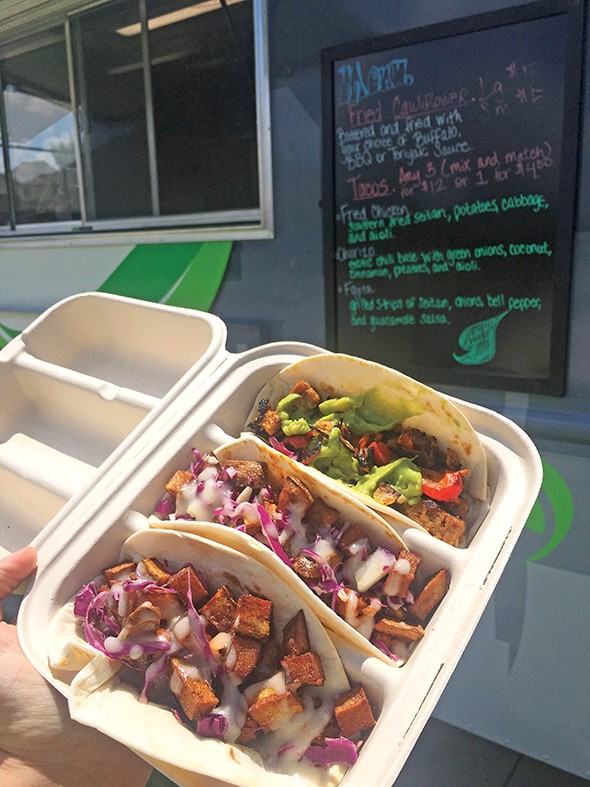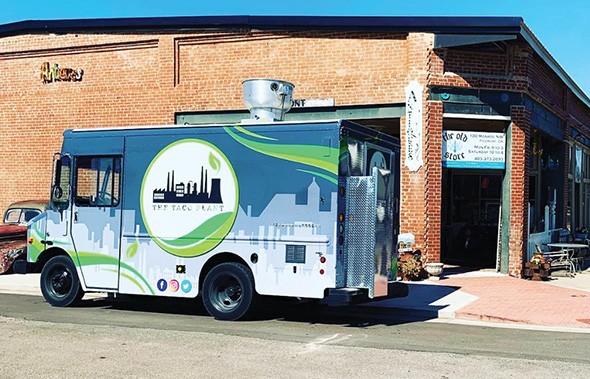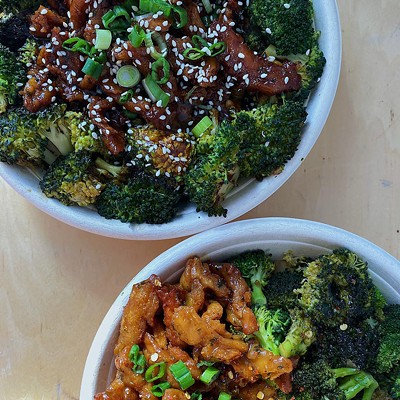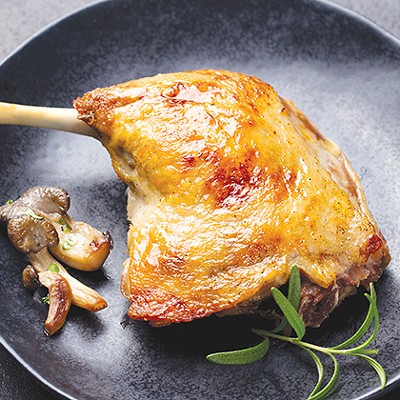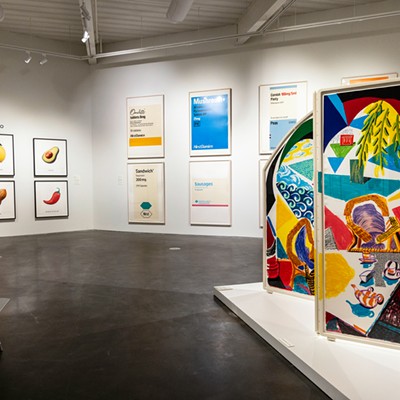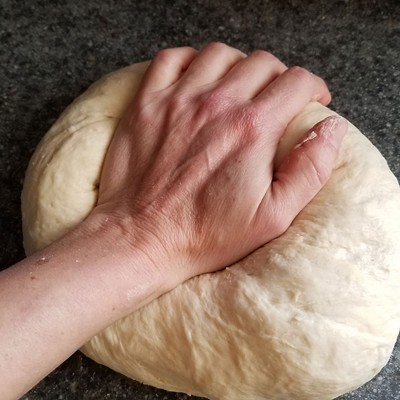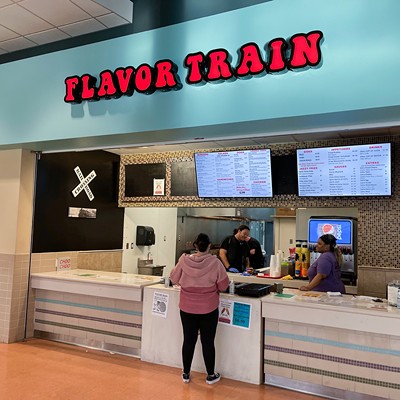The plant-based market in Oklahoma City is very much still in its nascent stages, but branches from the tree sprouted by The Red Cup and The Loaded Bowl are starting to emerge.
The Taco Plant — a food truck serving seitan, fried cauliflower and pea protein chorizo tacos — launched in the metro at the end of May. Plato’s Provisions Co. food truck has found permanent residency at 1618 Blackwelder Ave., and Plant opened at 1120 N. Walker Ave. on Aug. 5.
The path to food truck entrepreneurship for Taco Plant owners Eric and Amy VanHooser is a surprising one. Amy VanHooser started eating vegan about 10 years ago, but it started as a solo journey.
“I messed with her when she first started and gave her a hard time,” Eric VanHooser said. “I was part of that group that stereotypes. Then I got out of shape really bad, weighing way too much, and I thought one weekend, ‘I’ll try it. Let me see if I can go one weekend and not eat any meat,’ and I haven’t had any since.”
It has been two and half years since that fateful decision; it is one that has led the VanHoosers to make the jump and purchase the food truck so they feel more connected to and excited about their career path.
“He was an electrician and wiring fast food restaurants and doing a lot of Braum’s new locations and renovations,” Amy VanHooser said. “There would be a huge slab of raw bacon where he was working. I remember him saying, ‘I don’t want to do this anymore. What would feel true to me?’”
The couple thought about looking for a brick-and-mortar location for their concept, but since neither of them have restaurant experience, they decided a food truck and a limited menu would allow them to perfect their process.
They purchased the truck through Rolling Kitchens, which is based in Virginia and retrofits former U.S. Postal Service vehicles into food trucks.
“Life is just weird,” Amy VanHooser said. “It seemed like a far-off dream, and then all of a sudden, one thing changes and the trajectory is different. We felt like we were in roles that didn’t fit what was important to us; now, [work] is truly a passion.”
"I think seitan translates better than tofu-based things." — Amy VanHooser
tweet this
The Taco Plant’s menu is centered on Eric VanHooser’s homemade seitan that is both deep-fried and sautéed. It also offers chorizo tacos made with pea protein — the same filling used for popular Impossible and Beyond Burgers.
While the pea protein is relatively new, seitan has existed for millennia. It was first documented in 6th-century China and developed as a meat substitute, especially for people adherent to Buddhism. It existed by many different names over the generations, and the name seitan was coined by Japanese nutritionist George Oshawa — founder of the macrobiotic diet — to name a product made by one of his students in 1961. Seitan has been commercially imported to the U.S. since 1969, according to a history of soybeans published in 2014, even though seitan contains no soy.
Led by burger replacements like the Impossible and Beyond patties, plant-based products have seen a boom in recent years, and a lot can be credited to the shift from marketing things as “vegan” or “vegetarian” to “plant-based.” The amount of products in the U.S. labeled “plant-based” has grown 268 percent from 2012 to 2018, according to The Washington Post. The market is moving away from tofu-based meat replacements.
“I think seitan translates better than tofu-based things,” Amy VanHooser said. “When you use tofu [as a meat replacement], it just doesn’t have the same texture. The engineering that’s gone into things like Beyond meat is kind of creepy. For someone that hasn’t eaten meat in that long to bite into that, you’re like, ‘Oh my gosh! That tastes like a real burger.’”
The process to make seitan is straightforward, yet time-consuming. Wheat flour dough must be washed until the starch is removed. Eric VanHooser said each batch takes a little over an hour to make.
“I want the final product to taste as much like chicken as possible,” he said.
The Taco Plant serves its seitan breaded and deep-fried with the addition of Buffalo or barbecue sauce with potatoes, cabbage and aioli. A fajita taco is served with sautéed seitan, onions and peppers and guacamole. The chorizo is served with green onions, potatoes and cabbage. The Taco Plant also offers fried cauliflower with a choice of Buffalo, barbecue and teriyaki sauces.
“We’re not health food, although the fajitas are pretty healthy,” Eric VanHooser said. “We’re healthier. When you go vegan, you find that you’re missing comfort, and it’s what I needed. I could only do salads, rice and broccoli so much. I was a picky eater. I feel like if I like it, a majority of people will like it.”
The Taco Plant offers free samples to entice inquiring customers.
“Some people will see seitan on the menu board and start to walk off, and we offer them a sample,” Eric VanHooser said. “Probably 8 out of 10 times, they’ll go ahead and order.”
“The idea is to be crossover artists. People aren’t eating it because it’s vegan or not; it’s just good, and that’s the main goal,” Amy VanHooser said.
The Taco Plant has found success with private events but is also regularly set up during the week for lunch outside The Mark salon at 7101 N. May Ave.; The Black Scintilla, 112 N. Walker Ave., on Sundays; and a rotating selection of area food truck parks.
“We talked about going to Portland or something, but there is something really cool about still being cutting-edge here and having more of a mission rather than going somewhere where it is more acceptable,” Amy VanHooser said.
Visit facebook.com/thetacoplant.

